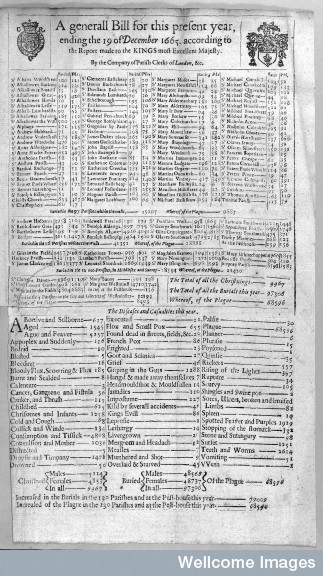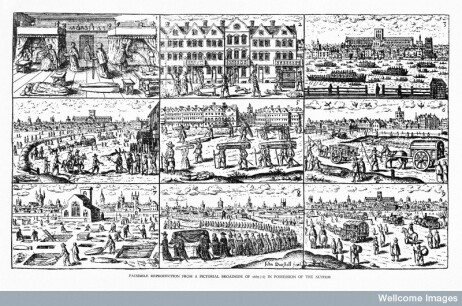The devastating outbreak of Ebola that began a year ago has now claimed the lives of more than 10,000 people according to the World Health Organization (WHO), mainly in Sierra Leone, Liberia and Guinea. Incidents have steadily declined, but dozens of new cases are still being reported each week. Authorities in Sierra Leone recently ordered a three-day national lockdown to prevent spread of the disease (ending 29 March) in the latest attempt to stem its progress. Nonetheless the country has declared a goal of zero infections from Ebola by April 2015.
The scene of so many human tragedies and loss to families has gained worldwide attention in the midst of attempts to manage a crisis in public health and to avert an even greater disaster. To understand an ordeal of this kind we inevitably search for historical parallels and ways of imagining the experience. Perhaps the most vivid account of such circumstances appears in Daniel Defoe’s novel, A Journal of the Plague Year (1722), his description based on historical sources of the Great Plague of London in 1665 in which upwards of 100,00 lost their lives. Defoe wrote the work in the shadow of another plague epidemic, the Marseille outbreak of 1720-23 which caused the deaths of a similar number.

Credit: Wellcome Library, London
Printed text
From: London's dreadful visitation: or, a collection of all the bills of mortality for this present year
Published: E. CotesLondon 1665
Folio 05 recto
Collection: Rare Books

Credit: Wellcome Library, London
Woodcut 1924
From: The Great Plague of London
By: Bell, Walter George
Published: John Lane, London 1924
Collection: General Collections
Published: 14 May 2015 Categories: Medicine, English Literature

